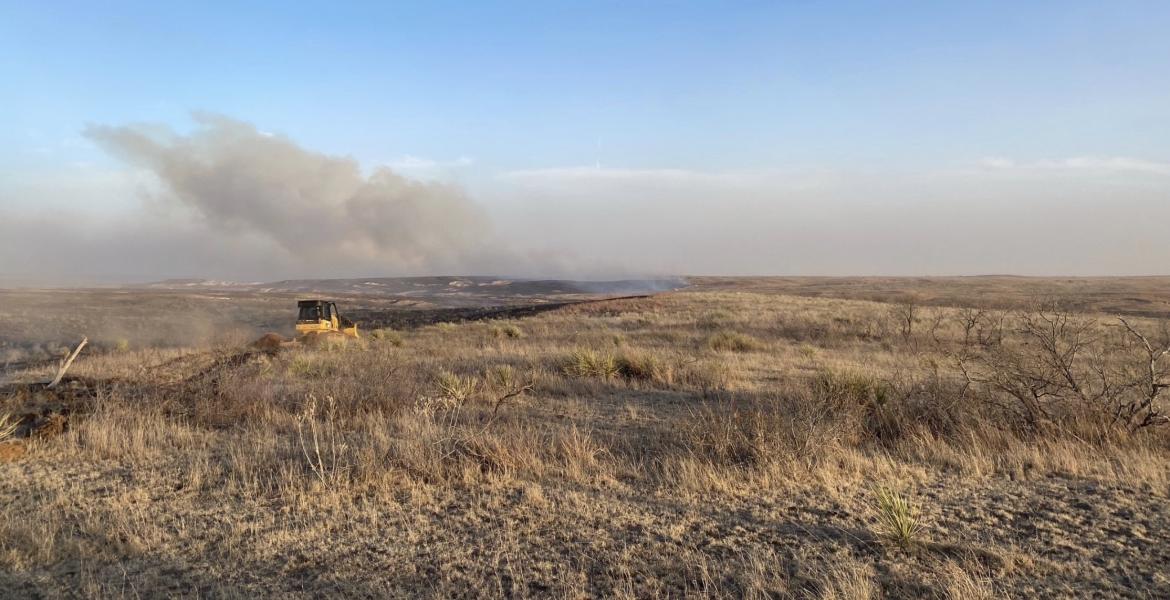By Stephen Simpson and Terri Langford, The Texas Tribune
"Texas youth camps say cost of implementing new safety requirements will force them to close" was first published by The Texas Tribune, a nonprofit, nonpartisan media organization that informs Texans — and engages with them — about public policy, politics, government and statewide issues.
Sign up for The Brief, The Texas Tribune’s daily newsletter that keeps readers up to speed on the most essential Texas news.
AUSTIN, TX - Texas camp owners on Friday urged the state health agency to give them more time and flexibility on costly new safety requirements, saying they could be forced to close by next summer.
“We support the goal of making camps safer,” said Riley Watkins, owner of Camp Oak Haven, west of Houston. “Let's work together to find a way for these new bills to work with us instead of against us.”
It was the first time youth camp owners got a peek at what two landmark bills passed this year, following the July 4 flooding deaths of 27 Camp Mystic campers and counselors, would mean for them come next summer.
Imelda Garcia, chief deputy commissioner of the Texas Department of State Health Services, and her staff opened the floor for public input on Friday after releasing a dramatic change that would raise the initial licensing fee for a large overnight camp from $750 to $11,000. Renewing a license would be slightly less.
License fees would no longer be tied to how many days a camp operates and instead be based on the number of campers served. Day camps would also see a license hike, from the current $250 a year to as high as $3,200 for those caring for the most campers. The state insists the fee structure will allow the health agency to recapture the more than $2 million the Texas Legislature budgeted this year to cover the costs of regulating the new safety requirements.
Owners of larger camps cautioned that the new hefty fees, especially for smaller camps, will likely put them out of business.
“I’d ask you to continue to look at what is a large camp versus a small camp, as anything over 500 being a large camp is probably just a misunderstanding of how large some camps are,” said Ryan Neuhaus, executive director of Camp Lone Star in La Grange. “I’d love for larger camps like mine to be able to shoulder a little bit more of the cost than the smaller camps.”
Representatives of Heaven's 27, a group of flood victim parents campaigning for camp safety, told the committee that camp owners should prioritize the safety of campers even if financial costs are high.
“These laws are not meant for camps. They’re for families who trust them and the children whose safety must come before profits, convenience, and arrogance. I say arrogance intentionally and not ignorance, because ignorance would imply they didn’t know the danger of that river,” said Michael McCown, the father of 8-year-old Linni, who died in a flood that swept through Camp Mystic.
On Sept. 5, Gov. Greg Abbott signed House Bill 1 (the Youth CAMPER Act), and Senate Bill 1 (the Heaven’s 27 Camp Safety Act), and Senate Bill 3 to enhance safety measures at Texas summer camps after a July 4 flood claimed 138 lives along the Guadalupe River, including 25 Camp Mystic campers, two counselors and the camp’s director. One camper remains missing.
Some of the regulations laid out in both bills are unique, and some share identical requirements.
Camp owners took the most issue with a new requirement that would force them to have dual broadband internet connections, one via a fiber optic network and another through a separate provider. This requirement is in HB 1 and not in SB 1the Senate version of the bill, leaving room for flexibility.
But camp owners say their rural locations — far beyond the reach of broadband internet — would require them to pay more than $100,000 to install, a cost nearly every camp in operation today cannot afford.
“The funding of all this. If you look back a year ago, the state Senate had a proposal for emergency alert funding, but it was declined because it was too expensive. Now they're passing it all on to us, a bunch of nonprofits, many of us that just barely get by,” said Gary Sirkel, the executive director of Lake Lavon Camp & Conference Center in Princeton.
Other new regulations would require youth camps to move overnight cabins out of floodplains, follow weather warnings with radios and alert systems, and train staff on emergency plans and have a detailed evacuation plan in case of an emergency, including where to move children to higher ground if needed.
“I’m sure when they enacted this bill, they never thought they would impact a camp like ours to the point of closure,” said Daran Miller, the executive director of Glen Lake Camps in Glen Rose, whose camp sits on the floodplain. “We’re unique. We’re within the city limits. We’re on a river that has not flooded in our 86-year history. We believe it’s important to evaluate each camp based on its site-specific characteristics. Not all floodplains are the same.”
A requirement that ladders leading to cabin roofs was questioned by Rhonda Roberts, the Executive Director of the Heart of Texas Camp & Retreat in Brownwood.
“I believe there’s a greater safety risk for this, for these new rules, than there would be without them,” she said. “Our roofs are the last place that we want campers, and it's not really a safe thing.”
Camp owners also suggested that a new safety committee, expected to be established a year from now and will include the State Fire Marshal’s office, the Texas Parks and Wildlife Department, Texas Department of Public Safety and the Texas Division of Emergency Management among its members, should also have a youth camp representative.
“A primary concern is that we don’t have a voice in a lot of this,” said Sirkel, the executive director of the Lake Lavon camp. “We appreciate these two-minute sessions, but when it comes to the committees, I don’t feel actively represented.”
Camp Mystic parents also added that if representation is a concern, then allow a parent to be on the committee as well to balance out the representation of the camp owners.
“You all now have the responsibility to implement these laws with strength, transparency, and integrity. House Bill 1 and Senate Bill 1 were written in the blood of my daughter and the other 26 girls who perished that night. If a camp cannot operate safely, then it should not operate at all.”
State health officials plan to formalize the new state youth camp regulations after listening to input and have them in place by Jan. 1. Camps would have a 45-day window to correct any licensing deficiencies, but those that wish to operate in 2026 will have to comply with the new regulations.
Disclosure: Texas Parks And Wildlife Department has been a financial supporter of The Texas Tribune, a nonprofit, nonpartisan news organization that is funded in part by donations from members, foundations and corporate sponsors. Financial supporters play no role in the Tribune's journalism. Find a complete list of them here.
The wait is over! The full TribFest program is here. Join us Nov. 13–15 in downtown Austin and hear from 300+ thinkers, leaders and change-makers shaping Texas’ future. TribFest gives you a front-row seat to what’s next, with 100+ sessions covering education, the economy, policy, culture and more. Explore the program.
TribFest 2025 is presented by JPMorganChase.
This article originally appeared in The Texas Tribune at https://www.texastribune.org/2025/10/10/texas-summer-camps-youth-meeting-cost/.
The Texas Tribune is a member-supported, nonpartisan newsroom informing and engaging Texans on state politics and policy. Learn more at texastribune.org.
Subscribe to the LIVE! Daily
Required






Post a comment to this article here: